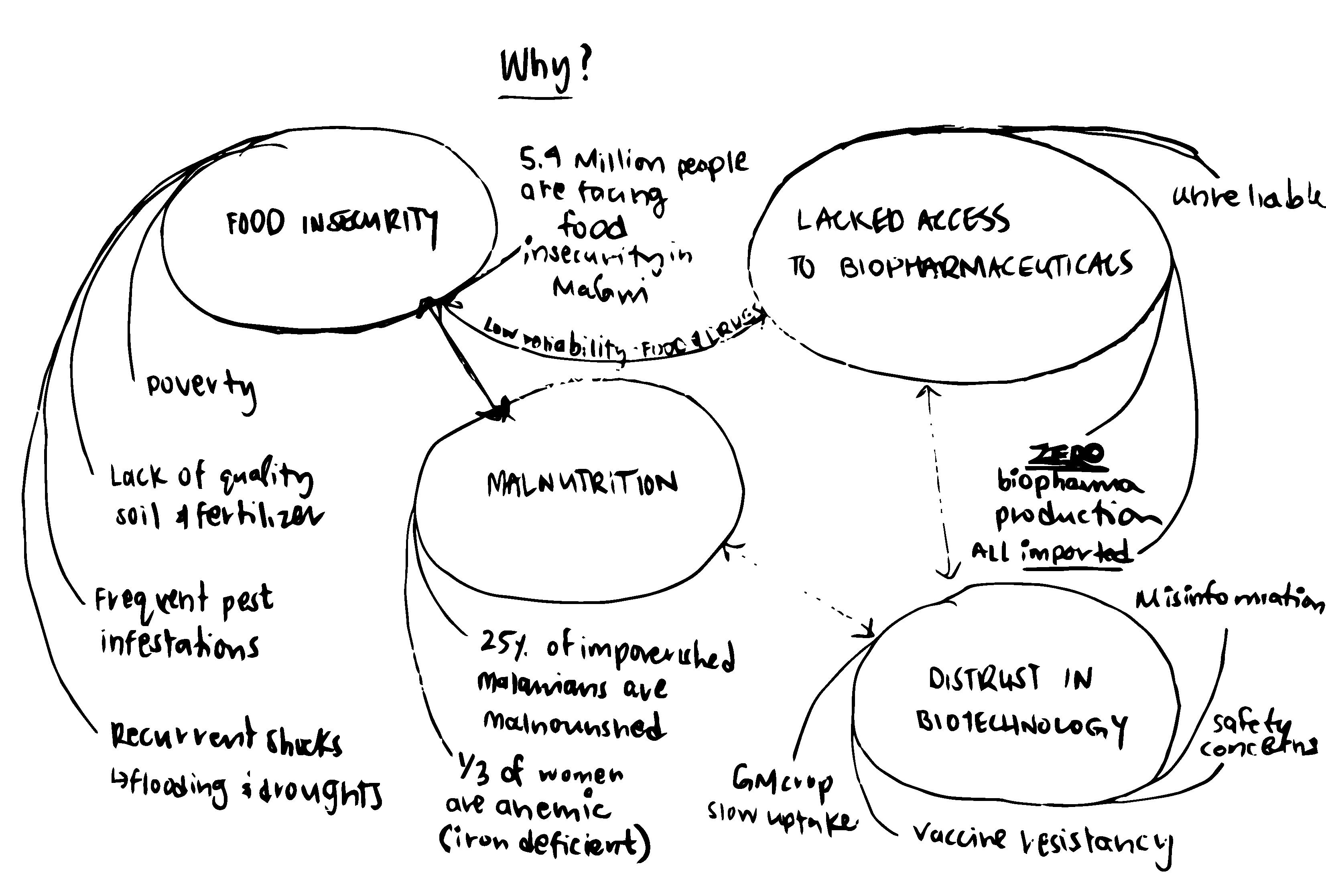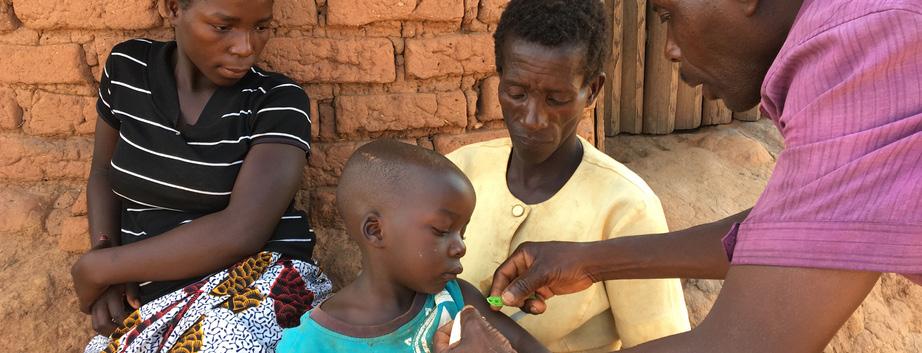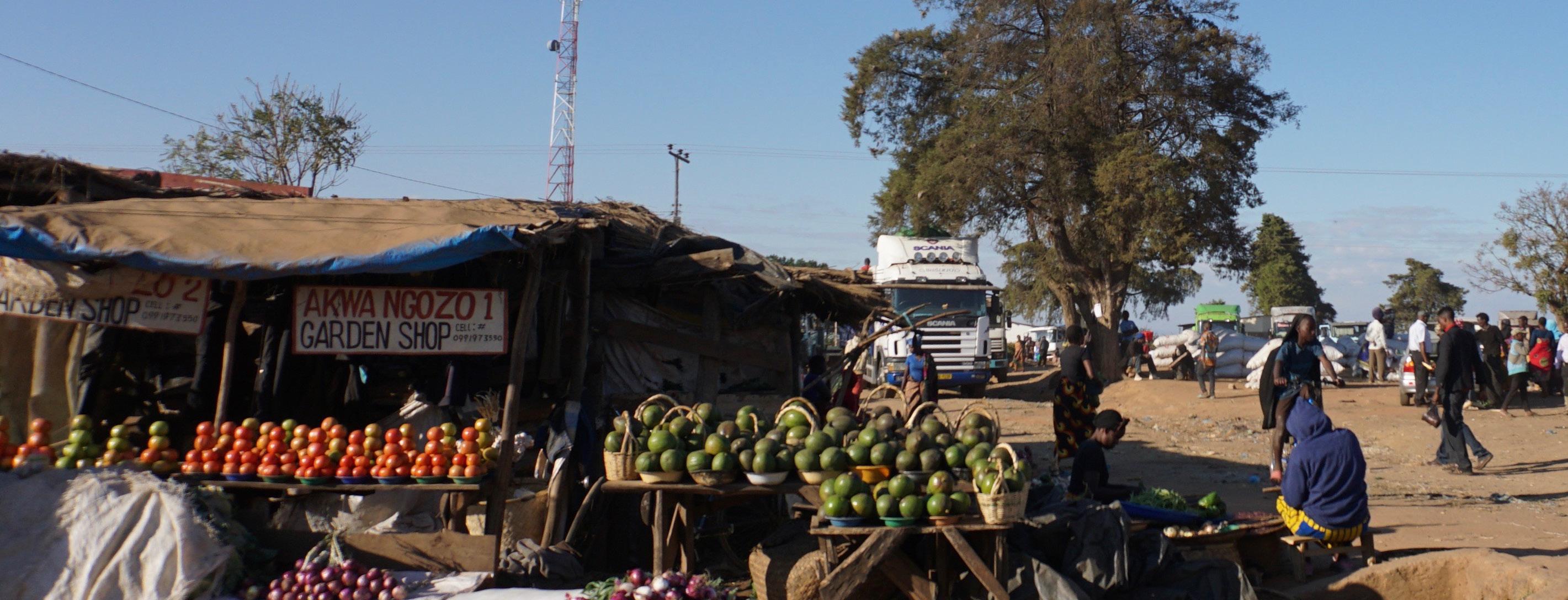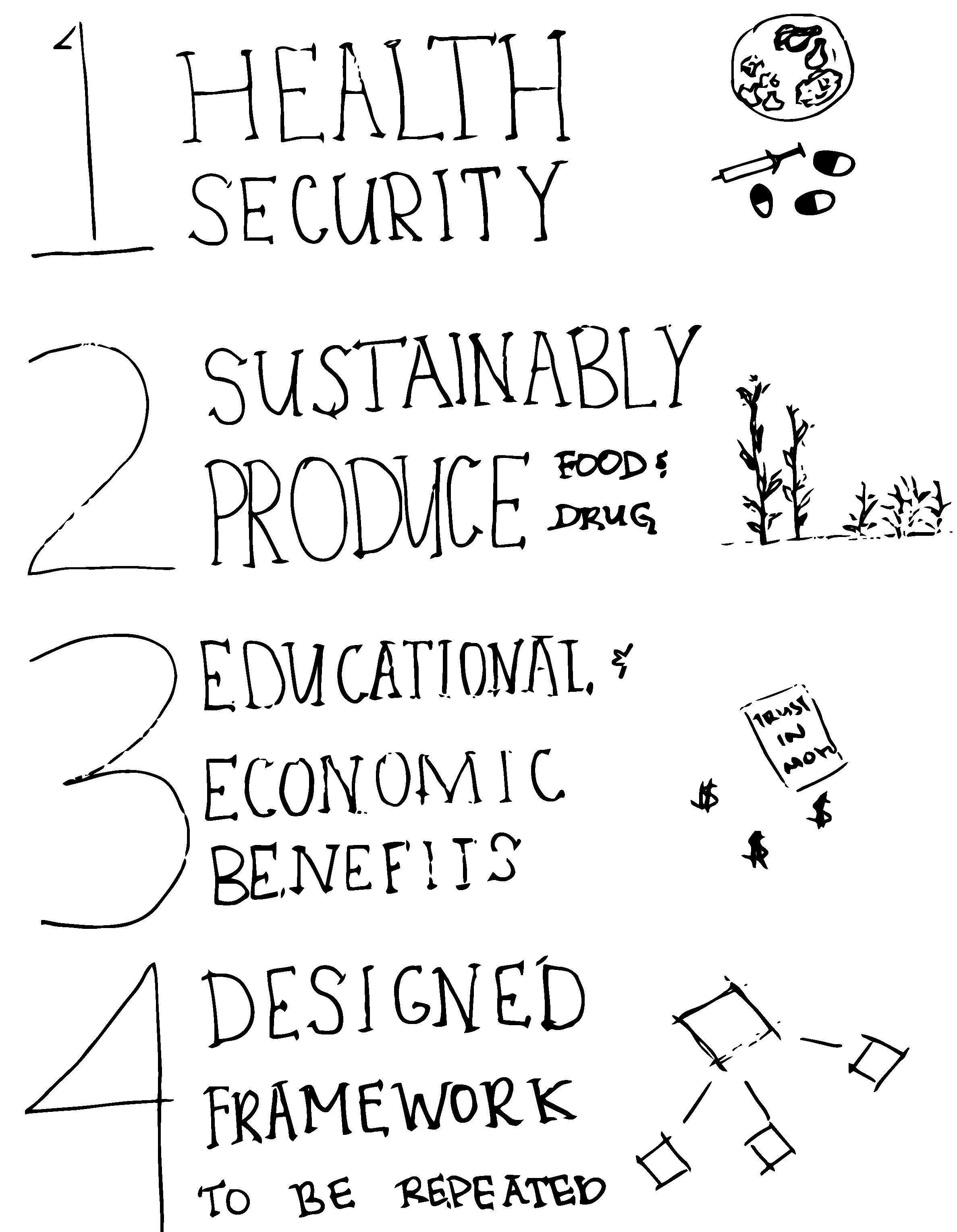
3 minute read
Thesis
This program proposal and design will be examining the techniques, practices, and opportunities of agricultural biotechnology on the KUHeS campus in northern Blantyre, Malawi. With an increasing population, Malawi is a country in need of reliable, inexpensive pharmaceuticals and yearround, nutritional food. Currently all biopharmaceuticals are being imported to the country, making them expensive and difficult for Malawians to trust them. Biopharming will allow Malawi to produce drugs in country and will increase awareness and education on biopharmaceuticals in Malawi. The introduction of genetically modified crops will provide food security to the campus and surrounding community that resists pests, adds nutritional value, and is stable during the drought season.
Introduction:
Advertisement
Rationale, Challenges, Intentions, & Goals
According to the 2022 IPC Chronic Food Insecurity Report, over 70% of the Malawian population is living below the international poverty line of $1.60 per day resulting in major health disparities for Malawians.1 These health disparities include food insecurity, malnutrition, and lack of access to pharmaceuticals.
“Approximately 5.4 million people in Malawi living in rural and secondary urban centers are facing Moderate or Severe chronic food insecurity.”2 The food insecurity is caused by poverty, the lack of quality soil and fertilizer, frequent pest infestations, and recurrent shocks such as the combination of flooding and droughts. Of the 70 percent of people living in poverty, “more than a quarter are unable to consume the recommended daily amount of food (Quantity) and with the adequate dietary diversity (Quality).” 3 According to Malawi’s National Nutrition Policy, there have been many cases of malnutrition especially with nutrient deficiencies like iron, vitamin A, and zinc.4 This project will analyze these disparities and determine sustainable solutions for nutritional, sustainable, and quality food production.
The ultimate goal is that both the biopharming and agricultural biotechnology prototype at the KUHeS campus will provide training and educational, social, and economic benefits to the community as well as be a framework for other farmers in sub-saharan Africa.









The intentions of this study are as follows: (1) Examine the health disparities regarding food and vaccines (malnutrition, food insecurity, lack of pharmaceutical manufacturing nearby, and vaccine uptake reluctance), (2) Evaluate sustainable practices and techniques to produce food and drugs, (3) Design a biocultivation center for food and drugs that becomes a framework for farmers in Malawi, (4) Determine how the center will educate the population on the importance of health and provide economic benefits to the community that was displaced.
The methods used in this study are as follows: (1) broad literature reviews, (2) analysis of case study projects, (3) quantification of data, and (4) design. Literature reviews will be used to determine rationale for the project, health disparities based on data, and the sustainable strategies used in biotech and bioprocessing. The analysis of case studies will be informative of other sustainable architectural structures used to produce and manufacture food or drugs, especially in sub-tropical climates. Quantification of data such as the amount of drugs or food produced or acreage of land needed are important steps in order to design a space. And lastly, physically designing the spaces needed to cultivate food and drugs is important to determine to achieve the goals of this study.
The expected goals and findings of this project are as follows: (1) Provide more health security (food & drug) to the campus and surrounding community, (2) Produce food and drug using sustainable strategies, (3) Provide educational, social, and economic benefits to the population regarding nutrition and drug importance (Increase trust in Ministry of Health), (4) Design a planned framework for farmers in Malawi to follow to produce their own crops or biopharmaceuticals. This project analysis is necessary in order to address the health disparities, food insecurity, malnutrition, and pharmaceutical uptake reluctance in Malawi.
Methodology:
Research on Regulations, Biotech, & Processes
- LUANAR’S DEPARTMENT OF BIOTECHNOLOGY HELPS INCREASE FARMERS YIELD THREE FOLD & ENSURES THE COMMUNITY’S FOOD SECURITY
- RESEARCH OF TRANSGENIC PLANTS WITH STRAINS TO IMPROVE DROUGHT TOLERANCE, ANTIFUNGAL RESISTANCE, ETC
- FARMING TECHNIQUES USED TO CREATE HIGHER YIELD
REGIONAL EFFORTS HELP SUPPORT LOCAL FARMERS & HEALTH SYSTEMS
- PROVIDE QUALITY, EQUITABLE, & AFFORDABLE HEALTH CARE
- ENSURE ACCESS TO NUTRITIOUS FOOD
- BY 2063, MALAWI HOPES OF IMPROVING THE AVAILABILITY & QUALITY OF HEALTH INFRASTRUCTURE, MEDICAL EQUIPMENT, MEDICINES & MEDICAL SUPPLIES
- ENSURE FOOD & NUTRITION SECURITY WITH THE PLANNING & EVALUATION OF LOCAL NUTRITION PROGRAMS
- MINISTRY OF HEALTH HAS STRATEGIC PLANS IN PLACE FOR IMPROVING FOOD, DRUG, & NUTRITIONAL ACCESS
COMMON GOALS TO INCREASE AGRICULTURAL PRODUCTIVITY & OVERALL HEALTH
ELIMINATE FOOD, DRUG, & NUTRITION INSECURITY
GLOBAL INITIATIVES STRENGTHEN & SUPPORT THE MINISTRY OF HEALTH
Local Regional
-USAID HAS PROVIDED OVER �4 MILLION TO SUPPORT THE MINISTRY OF HEALTH IN AGRICULTURAL PRODUCTIVITY
-CHAI SUPPORTS THE MINISTRY OF HEALTH BY DELIVERING VACCINES & OTHER VITAL MEDICINES TO THE COUNTRY
Global
Experiments with agricultural biotechnology in Malawi started in the early 2000s where there were local, regional, and global initiatives. The local initiatives came mostly from Lilongwe University’s Department of Biotechnology where they completed confined field trials and experiments to increase farmers’ yield.5 Regional initiatives mostly come from the Ministry of Health and the Ministry of Agriculture where Strategic Plans were put into place to provide food security for all, food with a high nutritional value, and medicines for all Malawians.6 One of the global efforts for the mitigation of food insecurity is Clinton Health Access Initiative (CHAI). At CHAI they strive to improve access to quality medicines and food by financing efforts made by the Ministry of Health.7
Chitipa
Tanzania
- Provide quality, equitable, and affordable health
- Ensure access to
- Improving the availability of health infrastructure, medicines and medical
- Ensure food and nutrition and enhance the planning local nutrition programs
Zambia
CommercializedCotton
Mzuzu




